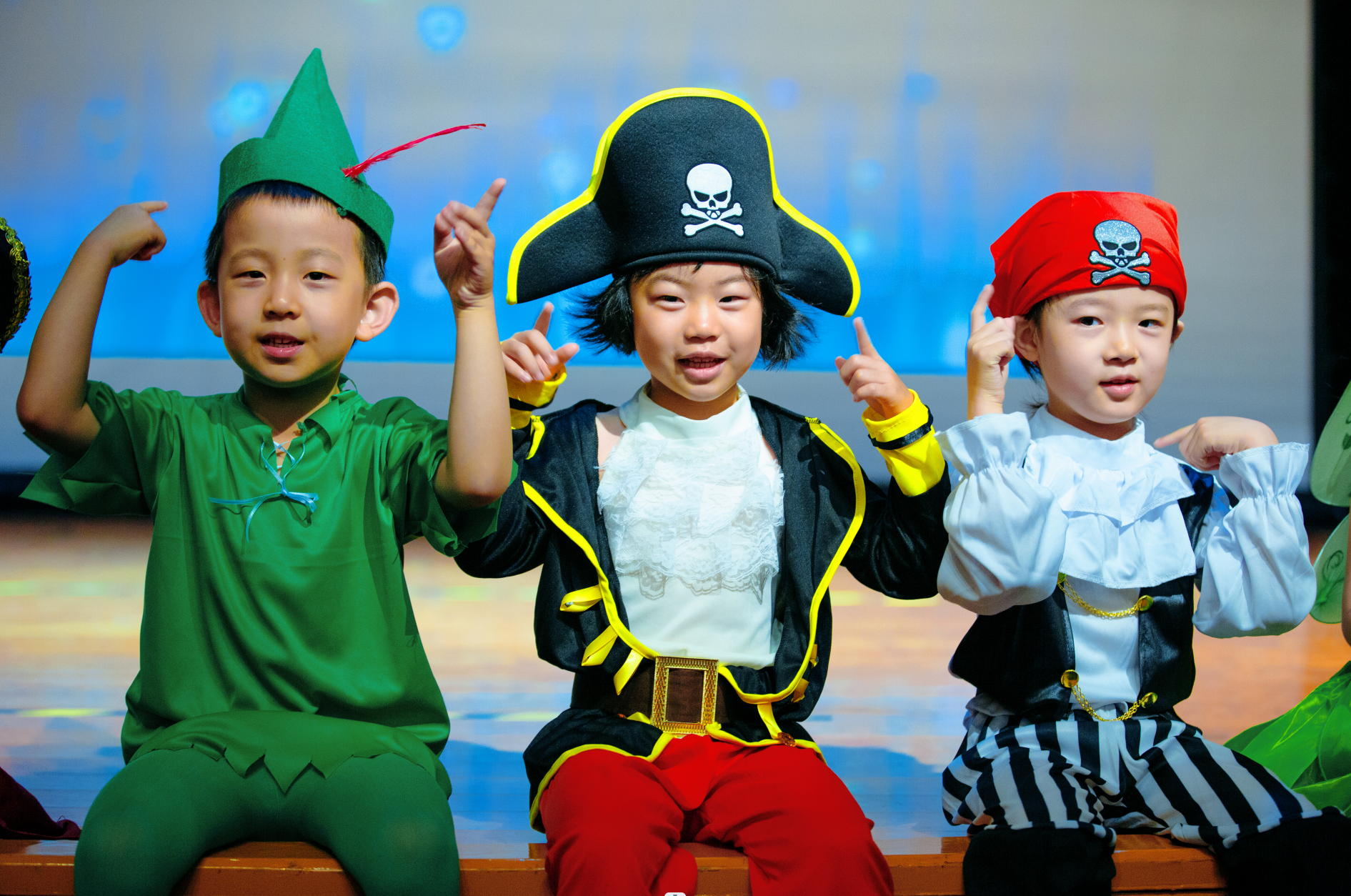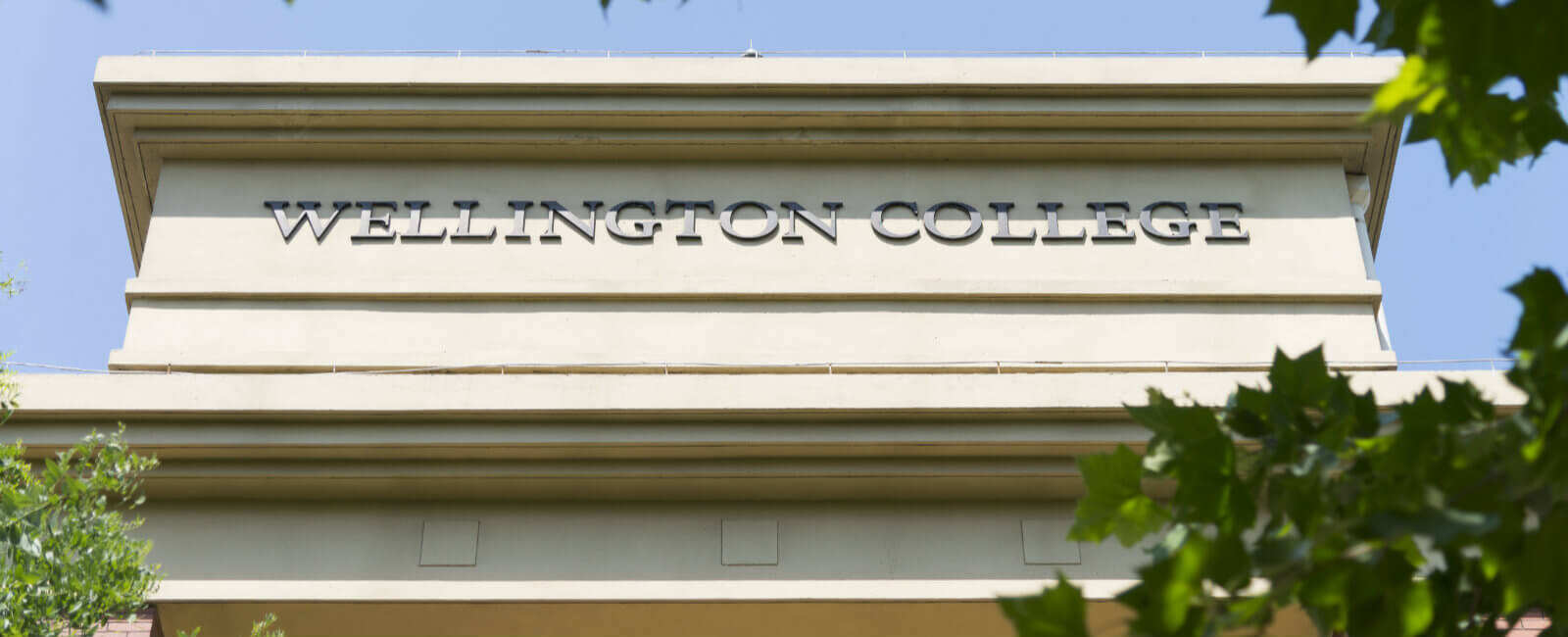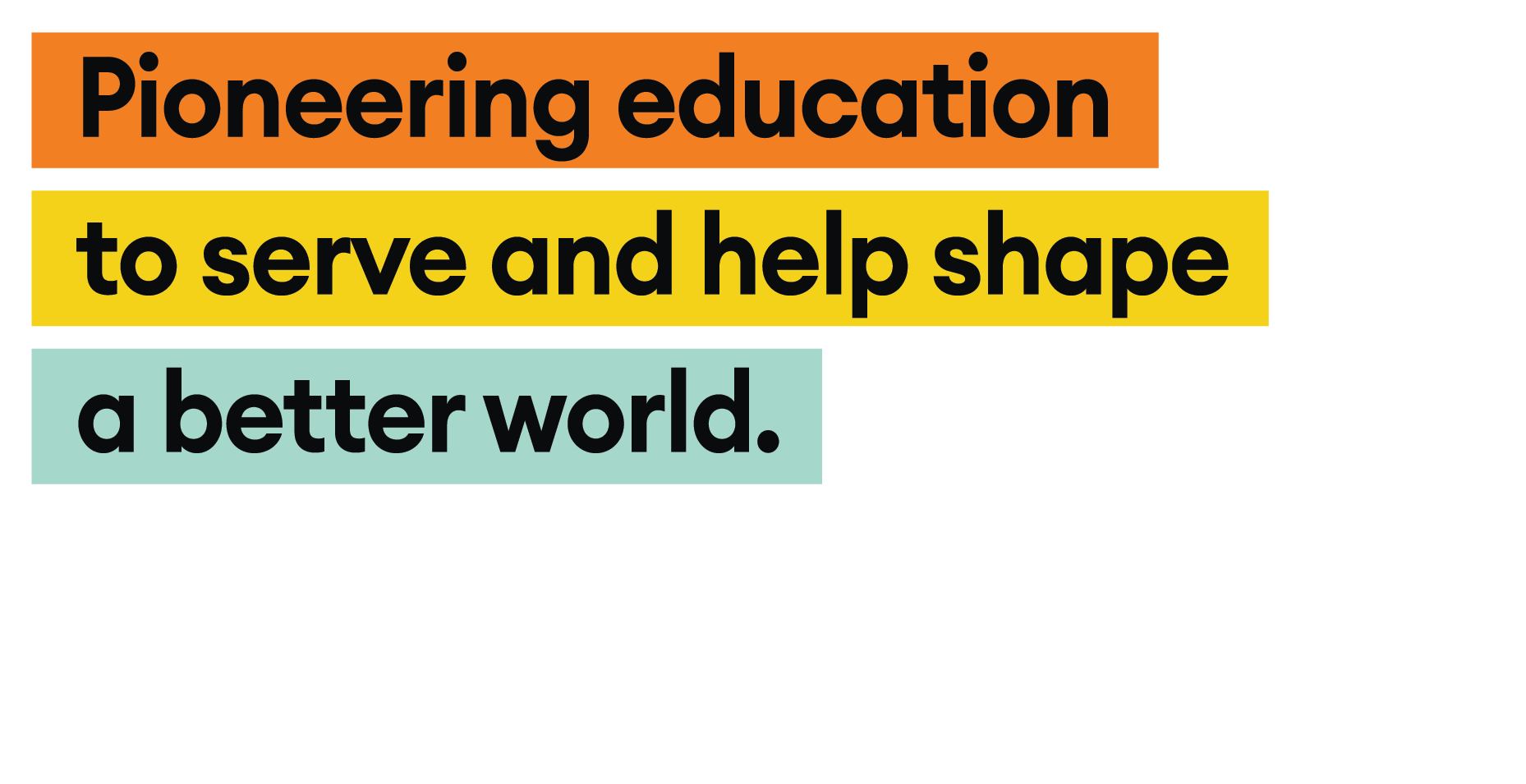The Week Ahead | World Happiness Day
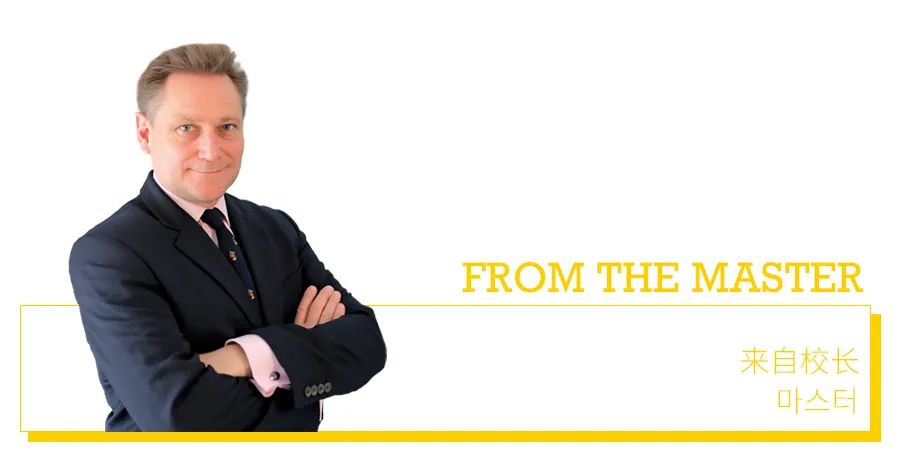
Dear parents
You may recall this famous remark from a few years ago: "…as we know, there are known knowns; there are things we know that we know. There are known unknowns. That is to say, there are things that we now know we don't know. But there are also unknown unknowns. There are things we do not know we don't know." This was, of course, Donald Rumsfeld's answer to a question about the existence of weapons of mass destruction in Iraq in 2002. Rumsfeld's response was widely derided at the time but, whilst he may have been trying to be evasive in a press conference, the comment is not as nonsensical as it may seem. It raises the issue of ignorance – the state of not knowing something – and how far people who are ignorant of something can be aware of how little they know. It is, in effect, a study in 'meta-ignorance'.
I have enjoyed reading some of the research done into the field of human ignorance or incompetence, largely because, like everyone, there are limitless topics of which I am wholly ignorant and many, many things in which I am serially incompetent. Perhaps the most famous recent study of human ignorance and its impact on behaviour identified what is known as the Dunning-Kruger Effect (1999). This study argues that people regularly overestimate their intelligence and ability in a given field: in one experiment, for example, Dunning and Kruger asked their 65 participants to rate how funny different jokes were. Some of the participants were exceptionally poor at determining what other people would find funny - yet these same subjects described themselves as excellent judges of humour. Furthermore, the more ignorant or incompetent people are, the more evident the Dunning-Kruger effect seems. This has a twofold impact. Not only are such people more likely to make mistakes, but their very ignorance also prevents them from knowing when they are making these mistakes and recognise when others are making better decisions.
Reading about psychological studies such as that done by Dunning and Kruger may be entertaining, but how does it impact your child at school? The importance lies in the fact that the implications of ignorance – Rumsfeld's "unknowns unknowns" - are far more profound than just laughing when a friend asserts silly or nonsensical things as truth. It would not be so amusing to conduct science experiments, for example, in an environment in which children did not feel the need to listen to instructions from their teacher. In the wider world, engineers and architects need to be sure that an unforeseen issue (an 'unknown', in other words) will not cause a disastrous accident. In ordinary circumstances, a COVID-19 vaccine programme would not have been rushed into effect across the world, with medical trials often lasting years before becoming available to the public, precisely to ascertain the likelihood of unexpected side effects – the unknowns of any drug trial.
The consequences of mistakes caused by ignorance or overconfidence in one's ability are thus potentially disastrous, so it is for such reasons that we try hard to foster critical thinking and independence in our pupils. It is not something that will ever cure our young people of ignorance; after all, even experts make mistakes based upon ignorance and false assumptions. The Kruger-Dunning Effect highlights the impossibility of assessing our own level of ignorance – put simply, we do not have the cognitive ability to measure what we do not know. In such a context, activities like group work and peer review tasks are vital. It may not be possible to identify your own limitations, but it is not hard to spot them in others. In this way, by working collaboratively, reflecting on their work, and challenging assumptions in critical but positive ways helps to embed wider understanding and deeper learning. For reasons such as this, Wellington encourages its pupils to be proactive and engaged in their learning. Thinking critically and independently can foster a level of metacognition that recognises the extent and the limits of a child's understanding. Thus, whilst never achieving the impossible and eradicating ignorance and incompetence, having the ability to be aware of one's limitations may become one of the great life skills of every Wellingtonian. In this way, the real impact of studies such as that of Dunning and Kruger is not to highlight the foolishness of others but to raise awareness of our capacity to think.
Best wishes
Julian Jeffrey
MASTER
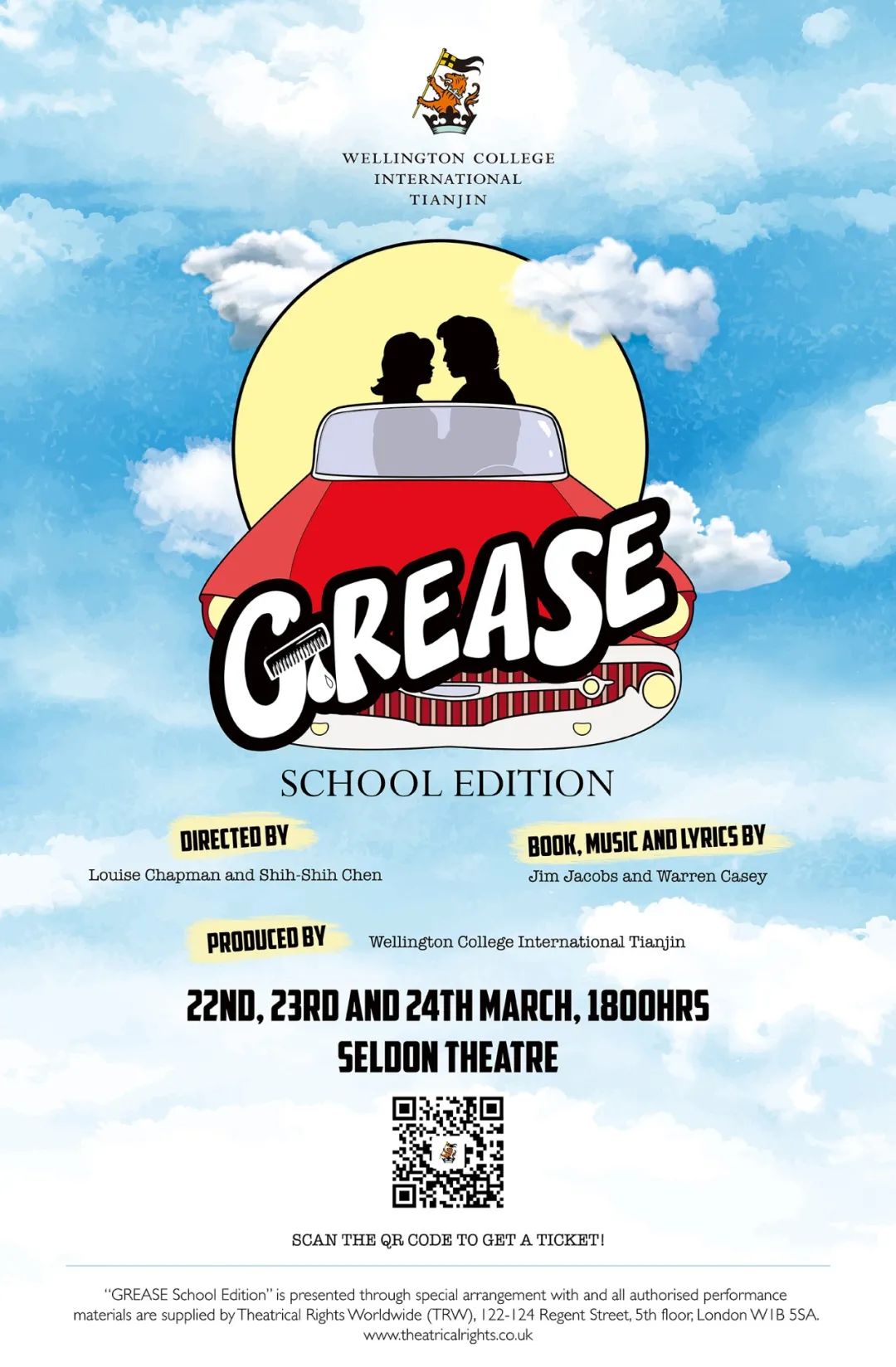

Notice
GREASE
Tickets for the school's production of Grease will be checked at the security entrance on Yide Dao from 1715hrs. All e-ticket-holders (pupils and parents) will need to have their tickets scanned on entry to school. A sticker will be offered in exchange for the e-ticket on arrival. This sticker should be displayed prominently throughout the evening's performance.
School finishes earlier next week
There will be no ASAs next week, as it is the last week of term. School will be finishing at 1550hrs for all pupils on Monday to Thursday and 1500hrs on Friday, 26th March. We wish you and your family a very happy and safe holiday, and we will re-open for the Summer term on Wednesday 7th April.

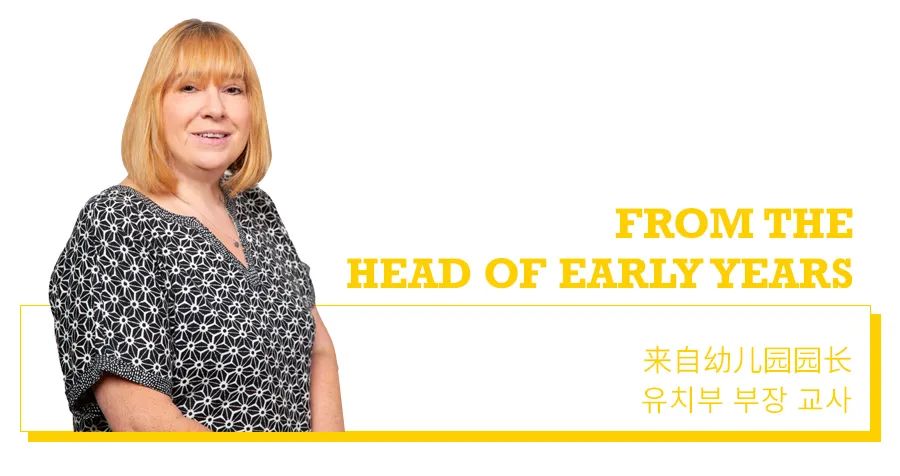
Today is World Happiness Day. It is good to take time to think about the things that make us happy. As individuals, many different things make us smile. The children in the Nest all have their unique personalities and find ways to show us how special they are, and what makes them happy.
Some of our children love to run and be as active as possible. This can be playing football, riding on trikes, climbing and running free. This can let us see the biggest smiles.
Some of our children are happiest when they are doing something less active but more focused and concentrated. They may be focused on an art project, building a model with construction resources, looking at books or having a sensory experience with sand or water play. This can also let us see the biggest smiles.
There are times when you feel most happy because you are surrounded by friends. At other times you are happy because you are able to spend some time by yourself. Sometimes its noise and being busy that makes you happy and at other times finding a quiet place to be by yourself with no pressure to do anything is what gives you a moment to smile.
It makes no difference how young or old you are; happiness will mean different things to us all at different times.
Today we celebrated World Happiness Day in the Nest by doing something that makes many of us very happy on a Friday…we danced! We danced a lot! Very soon you will be able to see a video of us dancing. When you see it, why not join in to see if dancing makes you happy too.
Whatever you do today with your family; do something that makes you all happy!
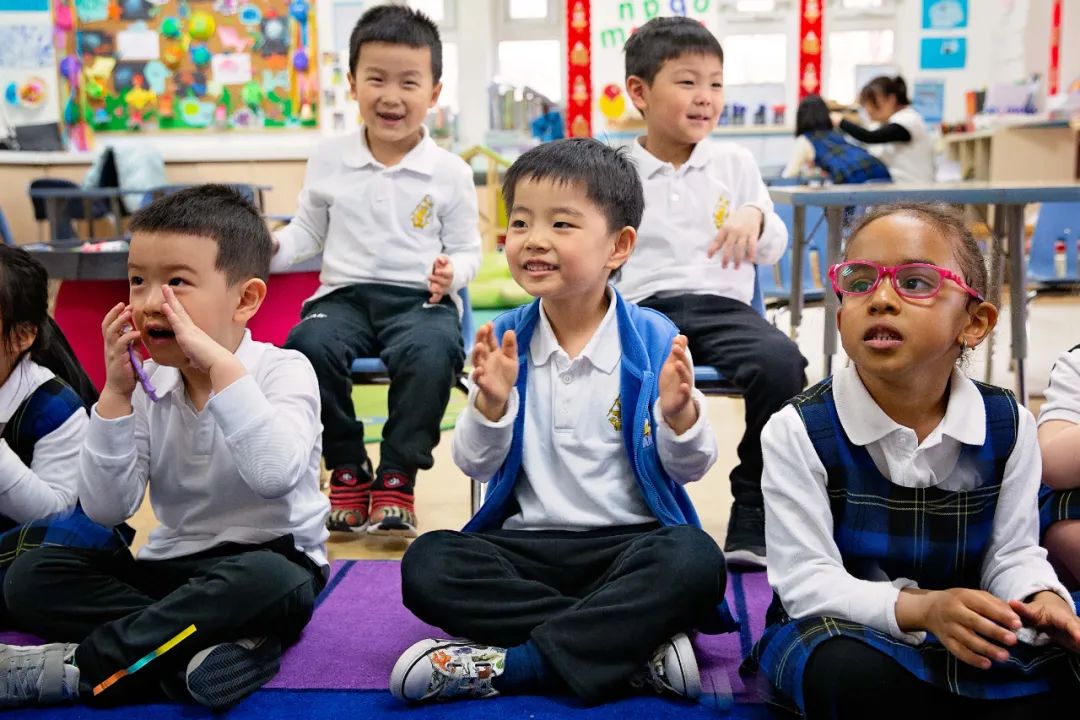

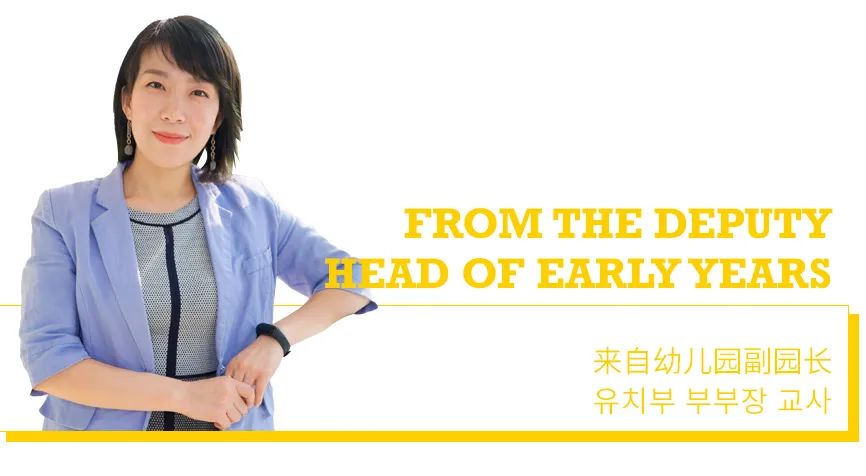
Nest Easter Egg Hunt
Friday, 26th March
We will wrap up the term with our much-awaited Easter in the Nest on Friday, 26th March, and the highlights will be the egg hunt and a visit from the Easter Bunny. There are also many exciting activities for the children to engage in, including making Easter crafts – paper bunnies and chicks, Easter eggs decoration, making Easter cookies. Children can come in their favourite spring dress to celebrate. In addition, the Nest Assembly scheduled for next Friday is postponed to 16th April as the theatre stage is unavailable at present.
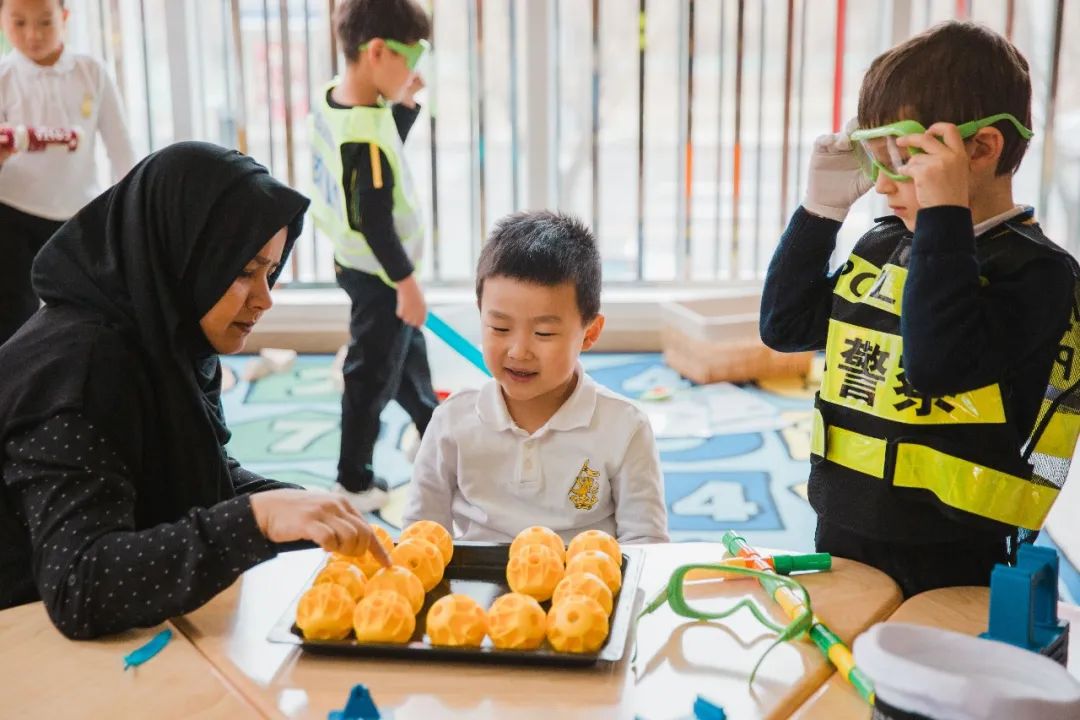

FROM THE SCHOOL LIBRARIAN
Book Fair
Wellington Arch (outside of the Uniform Shop and V&A)
0830hrs-1630hrs, Thursday and Friday
25th and 26th March
I am delighted to announce that we will host the annual Book Fair on 25th and 26th March. We have invited two foreign language bookstores from Beijing, and they will offer a wide range of books for children and adults in both English and Chinese and other languages.
Although electronic resources are more convenient and accessible today, they do not allow us to touch the actual books. I believe that nothing is more exciting than when pupils feel the cover, read the first few pages (or pictures maybe), and flick through it to decide whether they would like to read the rest of the book. The Book Fair is not just about selling books; this regular event is also a critical part of our library programme to encourage pupils to fall in love with reading. More importantly, having a Book Fair provides all the guests with the opportunities to talk to the booksellers, different teachers, parents, and pupils about other authors and genres that we may never have explored before.
We encourage parents to attend the Book Fair along with their children, so they can browse, choose and read the books together as a family.


FROM MRS MILOVANOVIC, SCIENCE DEPARMENT
World Water Day
22nd March
To raise awareness of the shortage of water on earth, the Science department has organised various activities across the school, including projects in the Junior School, and competitions and challenges in the Senior School. Also, it will be 'wearing blue' day on Monday; each pupil is encouraged to wear a piece of blue and donate 10RMB for the charity.
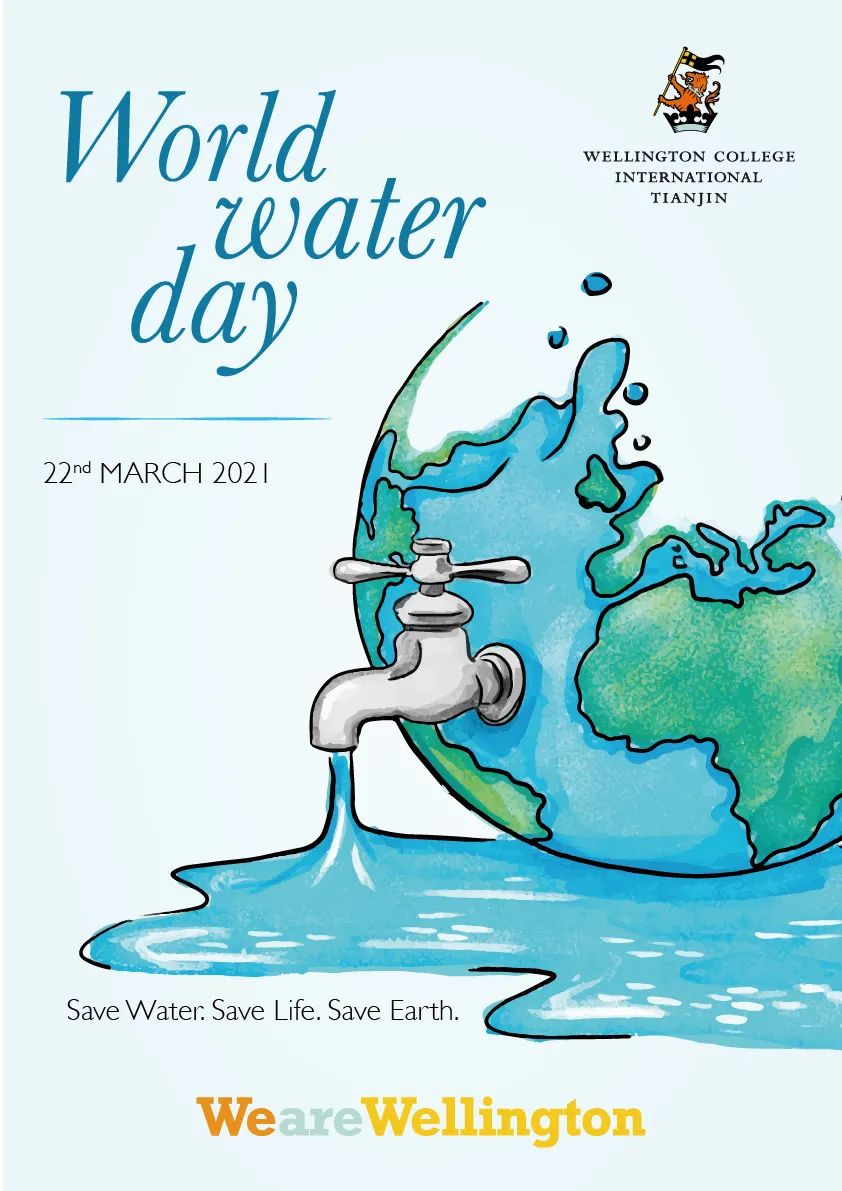

UPCOMING EVENTS
Monday 22 March 2021
All Day
Week 27 (A)
All Day
World Water Day (DM)
All Day
School finishes at 1550hrs for all pupils on 22nd, 23rd, 24th & 25th, and 1500hrs on 26th
6:00PM - 8:00PM
Musical - Grease (to 24th) (SSC) (Theatre)
Thursday 25 March 2021
All Day
Book Fair (to 26th) (LW)
Friday 26 March 2021
All Day
Nest Easter egg hunt (JB) (Nest)
9:00AM - 9:30AM
Nest Assembly- year 1 share and show (JB) (postponed to 16th Apr)
3:15PM
Lent Term ends (ES)
5:00PM
School reports: published (RA/DP)

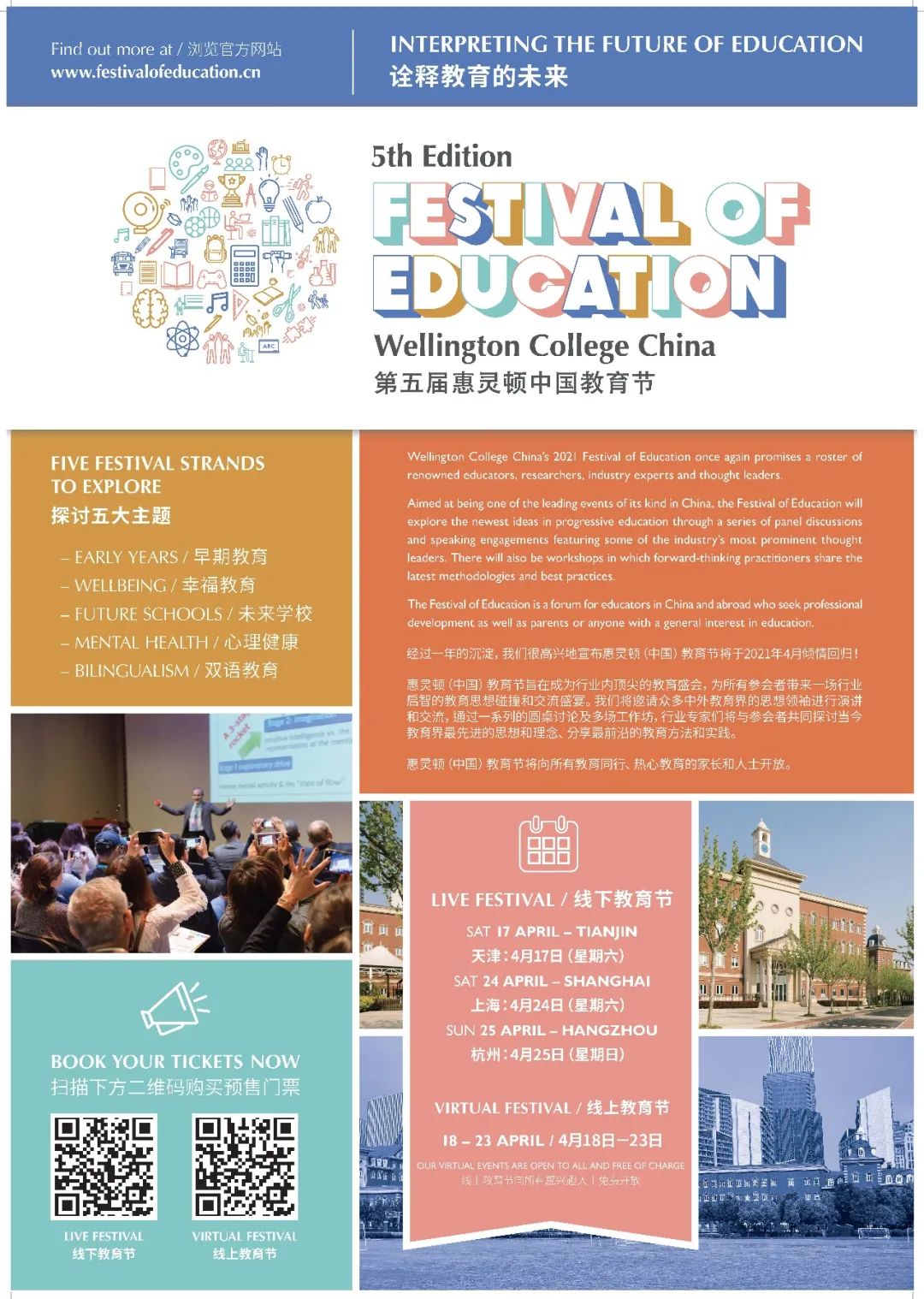
Dates and Times
The 2021 Festival of Education will feature virtual events online as well as live events at Wellington College's Tianjin, Shanghai and Hangzhou campuses.
Virtual Events

Sunday to Friday 18th – 23rd April
(Our virtual events are
open to all and free of charge)
Scan the QR code to register for
the virtual Festival of Education

Live Events

Saturday 17th April – Tianjin
Saturday 24th April – Shanghai
Sunday 25th April – Hangzhou
Pre-sale tickets are now available,
scan the QR code to book your tickets now!

Related Articles
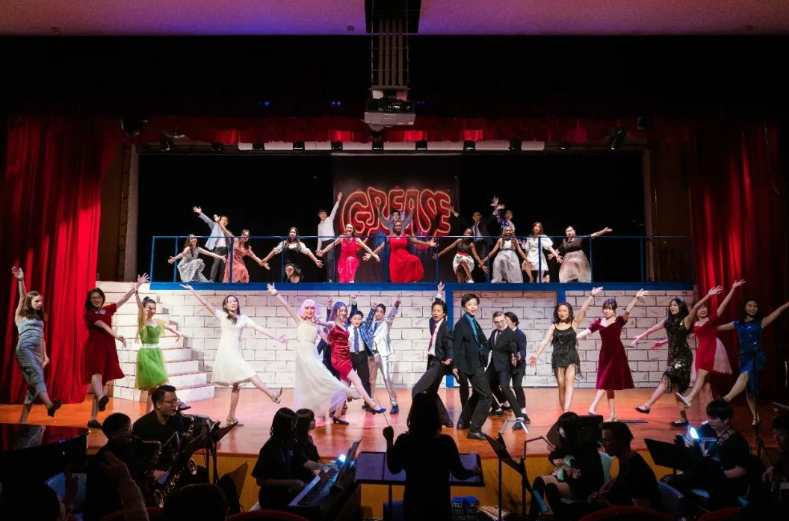
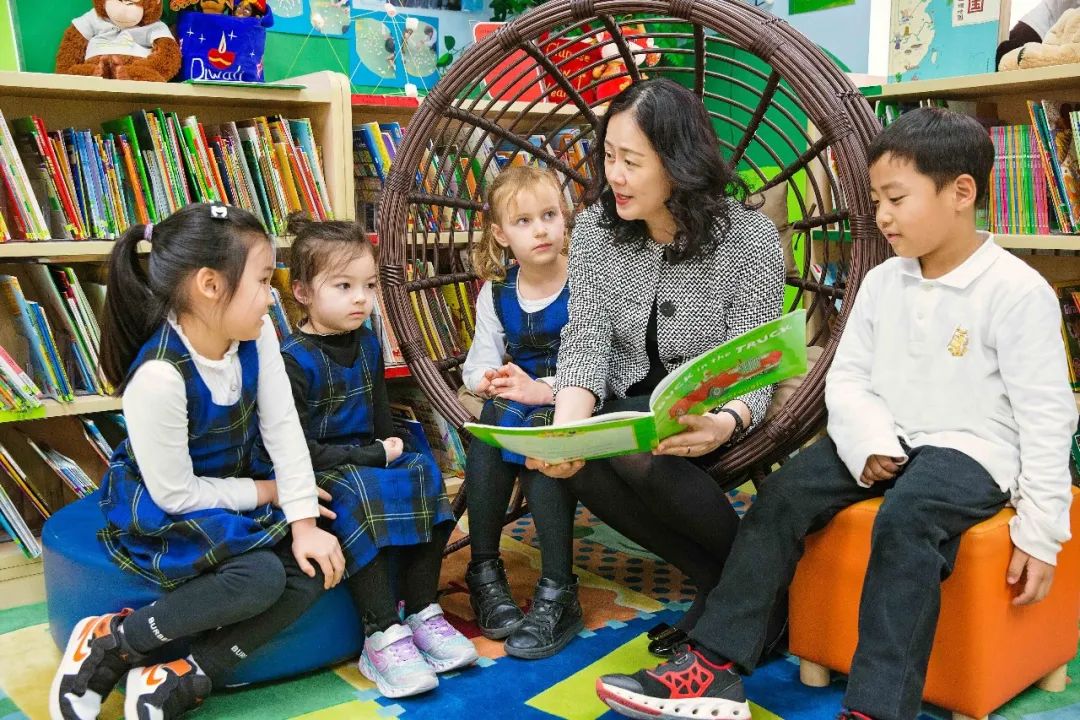
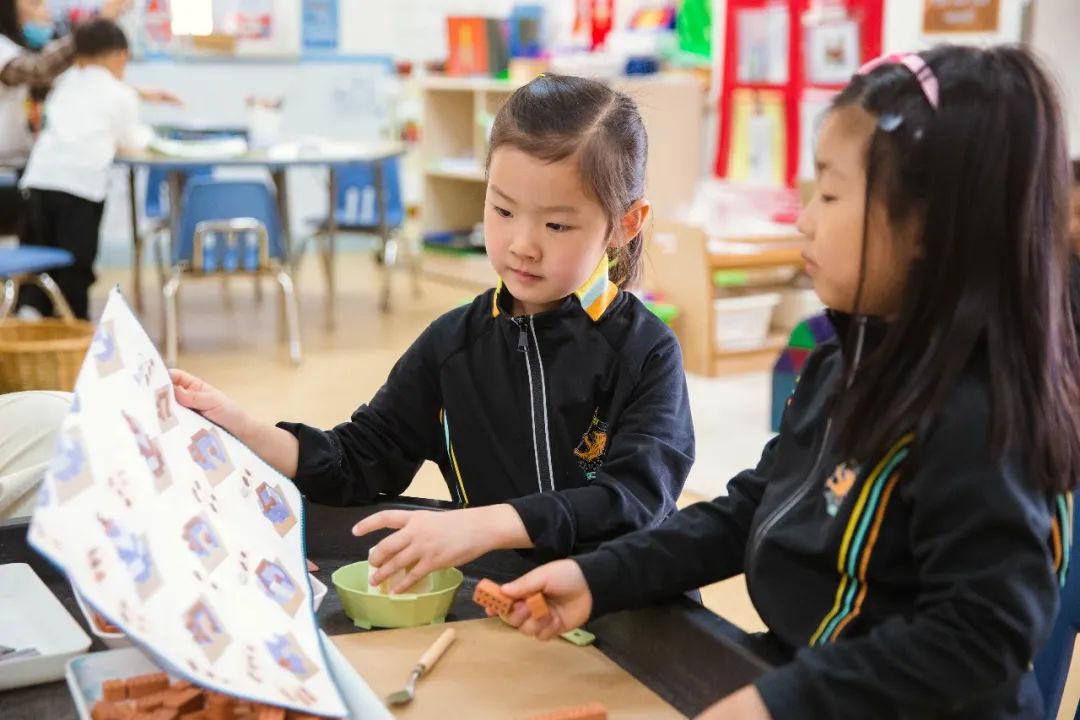





 Channel
Channel 
 Linkedin
Linkedin  Weibo
Weibo  Facebook
Facebook  Ins
Ins 

